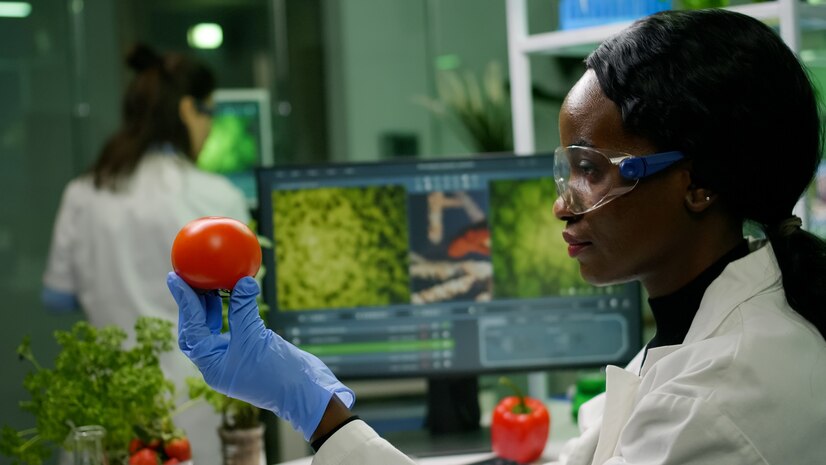As the global population continues to grow and climate change threatens food security, scientists are turning to advanced technologies to develop more resilient, nutritious, and high-yielding crops. One of the most promising innovations in this field is the use of artificial intelligence (AI) in genetic engineering. AI-powered genetic engineering is revolutionizing agriculture by accelerating crop development, reducing reliance on chemical inputs, and creating plants that can thrive in extreme conditions.
How AI Is Transforming Genetic Engineering
Genetic engineering involves modifying the DNA of plants to enhance desirable traits such as drought resistance, pest tolerance, and improved nutritional content. Traditionally, this process has been time-consuming and expensive. However, AI is making it faster and more precise by analyzing vast amounts of genetic data, predicting the effects of gene modifications, and automating complex experiments.
1. Speeding Up Crop Development
AI can quickly analyze plant genomes to identify genes responsible for traits like disease resistance or faster growth. Machine learning algorithms help scientists predict which genetic modifications will be most effective, allowing them to design improved crop varieties in a fraction of the time it would take using traditional breeding methods.
2. Enhancing Climate Resilience
With unpredictable weather patterns becoming a major threat to agriculture, AI-powered genetic engineering is helping create crops that can withstand extreme temperatures, droughts, and floods. AI models analyze historical climate data and plant responses, enabling scientists to develop crops that can adapt to changing environmental conditions.
3. Reducing the Need for Pesticides and Fertilizers
By identifying genes that naturally resist pests and diseases, AI is helping reduce the need for chemical pesticides. Similarly, AI-driven modifications can enhance nutrient absorption, decreasing the dependence on synthetic fertilizers. This leads to more sustainable farming practices and lower environmental impact.
4. Boosting Nutritional Value
AI is also being used to develop biofortified crops that provide essential vitamins and minerals. For example, scientists can enhance the levels of iron, zinc, and vitamin A in staple crops like rice, wheat, and maize, helping combat malnutrition in many parts of the world.
5. Precision Gene Editing with CRISPR
AI is improving the accuracy of CRISPR, a powerful gene-editing tool that allows scientists to make precise changes to DNA. By predicting the best target sites and minimizing unintended effects, AI ensures that genetic modifications are safe and effective.
Challenges and Ethical Considerations
Despite its potential, AI-powered genetic engineering faces challenges. There are concerns about the long-term effects of genetically modified crops, regulatory hurdles, and ethical questions surrounding the modification of natural organisms. Public perception and acceptance also play a significant role in determining how widely these innovations will be adopted.
The Future of AI-Driven Agriculture
AI-powered genetic engineering is shaping the future of agriculture by creating crops that are more resilient, productive, and nutritious. As technology advances and regulations evolve, AI will continue to play a crucial role in ensuring global food security. If used responsibly, it has the potential to transform farming and provide sustainable solutions to some of the biggest challenges facing agriculture today.
Join 'Farmers Mag' WhatsApp Channel
Get the latest Farming news and tips delivered straight to your WhatsApp
CLICK HERE TO JOIN






